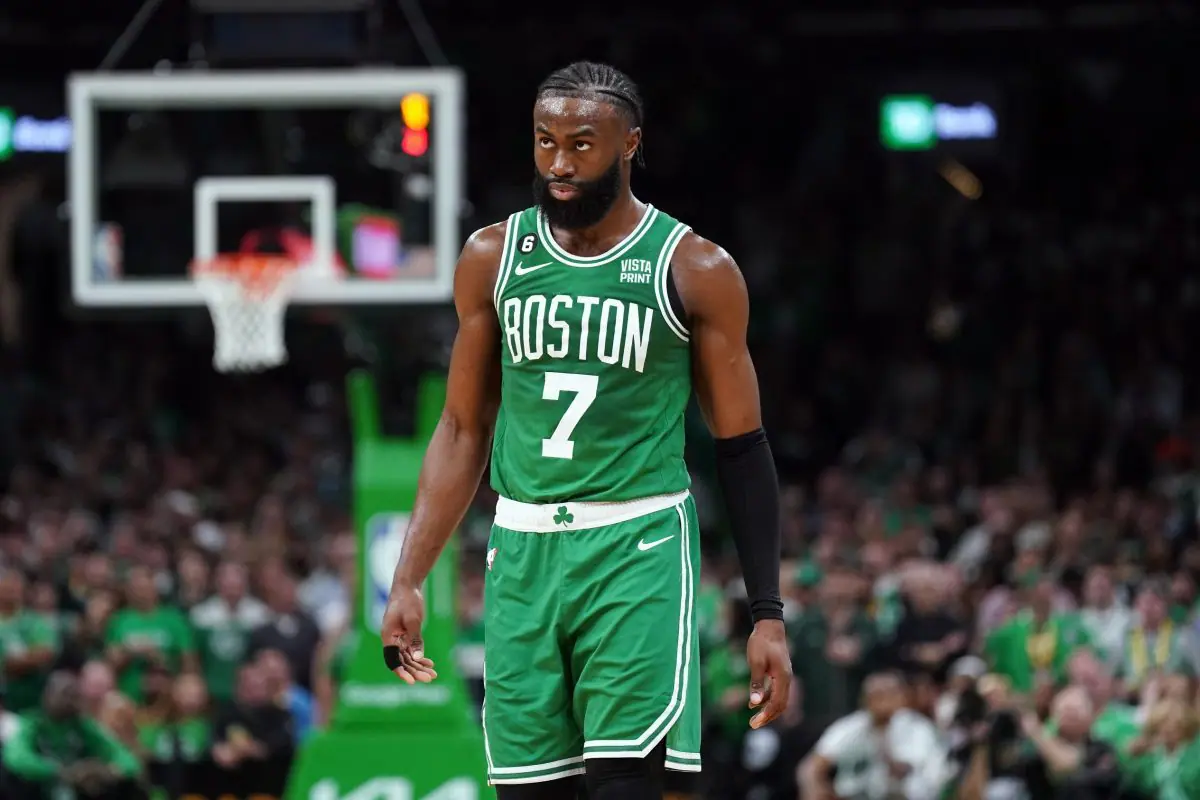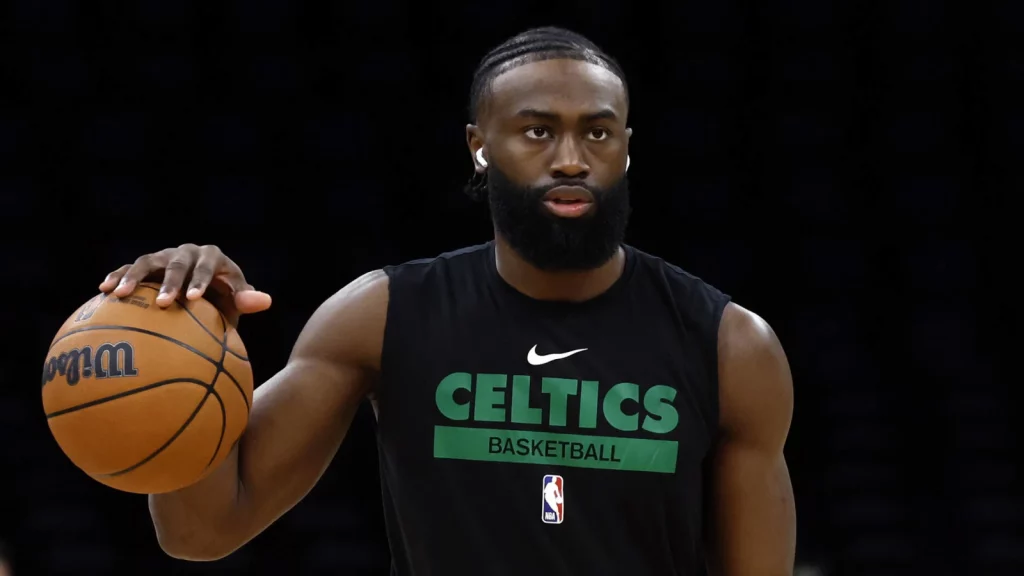Author: Monojit Mandal
The Boston Celtics and their best player, Jaylen Brown, are said to be excited about the possibility of finalizing a big five-year contract worth an impressive US$295 million in this year’s offseason.
According to inside sources, talks between the Celtics organization and Brown’s agents are ongoing, emphasizing the importance of this transaction. During an episode of SportsCenter, the famous sports commentator Brian Windhorst declared: “The sides are talking. This is definitely a very important and delicate transaction. I know that there is a desire on all sides for something to be done, and I predict that things will move in that direction. I believe it will be completed, but he is entitled to up to 35% of the salary cap, but is not obliged to receive it. Celtics have the ability to negotiate“.

They can negotiate over the choice of player. They have the ability to negotiate on a variety of issues. It’s not as simple as saying to Jaylen: “Here’s your contract”. Sign or don’t sign. There are components of the agreement that need to be negotiated. “Brown was named to the All-NBA team last season, which made him eligible for this big contract extension. His excellent performance, with averages of 26.6 points, 6.9 rebounds and 3.5 assists, earned him a place on the All-NBA second team.
It would have been a simple decision for the Celtics to offer Brown the maximum 35% deal under the old collective bargaining agreement. However, given the team’s competitive ambitions and the ramifications of the associated luxury tax, they may explore renegotiating certain terms of the deal. The Celtics have already demonstrated their willingness to prioritize performance over financial concerns, as seen in the purchase of Kristaps Porzingis and the subsequent $60 million contract.

It is crucial for the Celtics, as for other NBA clubs, to successfully negotiate the new collective bargaining agreement, especially to avoid exceeding the second luxury tax bracket. For the next seven years, clubs will be prevented from using the taxpayer’s mid-level exemption, leveraging funds in commercial transactions or reallocating their first-round draft pick.
For teams that consistently pass the second apron, the penalties, such as the relegation of their “frozen” draught team to the conclusion of the first round, become increasingly severe. This second apron basically acts as a soft cap, requiring clubs to be more careful when awarding expensive contracts. Players like Brown, who are of star calibre but don’t reach the fundamental level, could see their clubs negotiating small reductions in long-term contracts to ensure greater flexibility in the squad.

Looking ahead, the Celtics will have to negotiate Jayson Tatum’s contract, which will probably reach US$300 million next year. Without considering the rest of the team, the combination of these two gigantic contracts would guarantee almost $600 million in guaranteed salary commitments. As a result, Boston may ask Brown to accept a small reduction in the maximum value of the contract, which will give him more financial flexibility to build his team.
Jaylen Brown was born in Atlanta, Georgia, and raised in nearby Marietta. He began his basketball career at Wheeler High School, where he was a McDonald’s All-American and a consensus five-star recruit. He later committed to play college basketball for the California Golden Bears.
Brown showed his skills as a freshman in California, averaging 14.6 points, 5.4 rebounds and 2.0 assists per game, which earned him a spot on the Pac-12 All-Freshman Team.


